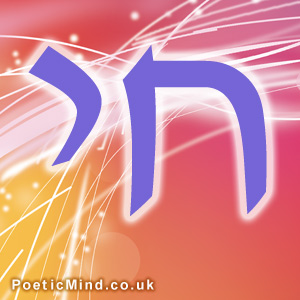
In part 4 we discussed free-will, which is enabled by the mere existence of balanced things/events (such as good vs bad). But if we look back at things we did, for example, let’s say I bought a car last year. So, it is a fact I have that specific car now. Since this has already happened and I have that specific car now, does this mean there was no other way at that time last year to buy a different car?
No, that’s not so, because we do have the power to go back… We do have an amazing ability to repair and change the past and that’s what’s called in Hebrew תשובה ‘Tshuva’. The root of that is repentance but that is the wrong word, really. ‘Tshuva’ means Tashuv – to return, the ‘returance’.
So, if we make bad choices, and we really do something God didn’t want us to do; immediately then, God, as it were, shuffles around all the cards of the universe and puts them now into a place where we can fix it all up again. That’s the thing that God guarantees us. At every stage, no matter how much mess we created – and please God we should do the good thing – but if we do inadvertently, or even wilfully sometimes (because we sometimes know we’re doing wrong), still God gives us an immediate opportunity to correct things. He shuffles all the things around us back into a shape where, with one little move back again, we can repair everything. That’s the concept of Tshuva.
Tshuva is a process of regretting what we have done and admitting that we have made mistakes, and then resolving to do things the right way from now on. We can actually completely change the past. That’s the idea of ‘Baal Tshuva’. Baal Tshuva, the master of Tshuva, is someone who has done Tshuva, and now the whole of their past is good. That’s an amazing thing. The Gzerot גזרות that one did now transform to positive, to Zhuyotזכויות . Even the ‘Meyzid’, even the things they did wilfully negative, are now turned to Zhuyot.
How can that be? If a person feel so bitter about what they’d done in the past, it can drive them to come closer to the light. And it drives them with great intensity. A feeling of darkness comes as they realize they had made mistakes. That sense of the abyss, of the darkness, gives them an unbelievable impetus to run with greater intensity and go toward to the light.
Where a true Baal Tshuva stands, even a Tzadik Gamur, a complete righteous person, is not able to reach, because the Tzadik is always on the part of goodness so he doesn’t feel the impetus. He doesn’t feel that unbelievable energy and being driven and propelled and catapulted into the light. Whereas the Baal Tshuva, who held a sense of dark, appreciates the light even more. He gets catapulted with even greater intensity; and that pushes him to even a higher level.
That higher level, how did he get there? It’s ironic, but it was through the sins he did… The sins have now become the cause of his reaching even higher light. Obviously, the sins have now ironically and paradoxically become Zhuyot. But that’s only when he’s a Tshuva. As long as he is in sin, and not a Tshuva, the sin is a sin… and they’re ‘Pegamim’, defects.
22 July 2012.
© Gil Dekel. My thanks to my teachers.


 - Reading with Natalie, book here...
- Reading with Natalie, book here...